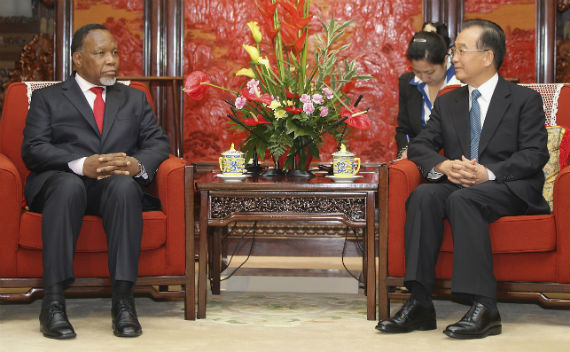South Africa’s Zuma Government Digs Itself Into a Deeper Hole Over Dalai Lama
More on:

The Zuma government’s failure to issue a visa to the Dalai Lama followed by Archbishop Desmond Tutu’s public comparison of the African National Congress (ANC) to its apartheid predecessor and President Zuma to Egypt’s deposed Hosni Mubarak has ignited a media firestorm in South Africa. It has brought to the surface anxieties about where the ANC is going. Its critics see it as divided, increasingly incompetent, and more concerned with internal competition over spoil than with improvement of the lot of the impoverished masses.
Thus far, the Zuma government’s response to domestic criticism over the visa issue has only made it worse. Deputy President Motlanthe says that China exerted no pressure, and that the visa would have been issued: “After all, he has been here before.” That statement is disingenuous as the South African government declined to issue a visa to the Dalai Lama in 2009. Official statements that the Dalai Lama applied too late or that his visa application was “incomplete” convince nobody. Nor has the government made the straightforward if unattractive argument that keeping out the Dalai Lama to keep the Chinese happy is in the national interest. Given Chinese silence, Motlanthe’s statement that he was under no pressure from Beijing is credible. But, I hope it is not true. Otherwise, the Zuma government is apparently guilty of self-censorship, which is worse than giving in to overt pressure from Beijing. As for President Zuma’s refusal to take responsibility for what was clearly a political decision, it makes him look weak.
But, unlike many other states in Africa and elsewhere, South Africa has political institutions that enable it to self-correct. Its free press makes the sordid details available to everybody. There is a formal opposition in parliament; and the Democratic Alliance has already said it will question ministers about the visa episode on the floor of the House. Further, the ANC is only one part of the governing coalition, albeit the largest by far. Its partners, the Congress of South African Trade Unions (COSATU) and the South African Communist Party have influence, and a COSATU spokesman has already denounced the Zuma government’s refusal to issue a visa to the Dalai Lama. Even the party is a big tent, and it can remove discredited political leaders, as it did in 2008 when it fired Thabo Mbeki, forcing him to give up the presidency.
More on:
 Online Store
Online Store